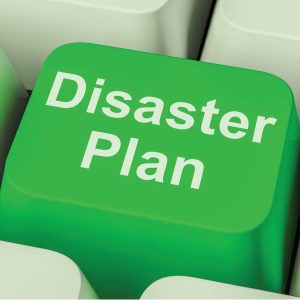 It is impossible to predict what the future will bring, but a growing number of people are focused on safeguarding their futures by preparing for catastrophic emergencies. Perhaps in reaction to terror-related attacks across the globe, the rise in devastating storms, and domestic and international social unrest, survivalism has gained a foothold in many households.
It is impossible to predict what the future will bring, but a growing number of people are focused on safeguarding their futures by preparing for catastrophic emergencies. Perhaps in reaction to terror-related attacks across the globe, the rise in devastating storms, and domestic and international social unrest, survivalism has gained a foothold in many households.
Survivalism is a movement of individuals or groups who are actively readying themselves for self-reliance in the event of an emergency that may stifle social or political order — or bring about other negative factors. Members of this movement have been called survivalists or “preppers.” The American Preppers Network defines a prepper as a person who takes personal responsibility for an impending disaster or emergency, typically by stockpiling food, water and other supplies. Although the extent to which preppers prepare for the possibilities of survival during difficult times varies from mild to the extreme, for many it has become a part of their daily lives.
There are countless reasons why people prep. These may include having resources should a grocery store or another retailer run out of supplies if a disaster occurs. Individuals need only take a look at the recent hurricanes that took place, in Houston, Texas, Florida and Puerto Rico to see how quickly food, water and other resources can be diminished. Prepping enables individuals to ride out such storms in the event that disaster aid or other assistance does not arrive fast enough.
Preppers practice certain strategies for dealing with pandemic illnesses, weather emergencies such as earthquakes or hurricanes, or nefarious undertakings, such as attacks by hackers on power grids or communications networks.
Various groups and resources list their top picks for supplies to stockpile. The following are guidelines culled from The Prepper Journal, Happy Preppers and The Survivalist Blog.
• Water filtration devices, including portable filters, bleach or purification tabs, keep water safe to drink. Be sure to have 5-gallon water jugs to store the water and transport it.
• Rice, beans, honey, canned vegetables, canned fruits, and canned meats have long shelf lives. Retailers offer prepared, freeze-dried foods that can be a good form of sustenance.
• Lighters and fire starters are handy. Should a power outage occur, an old-fashioned fire may be the best way to stay warm. Keeping seasoned wood and tinder also is helpful.
• Medications, such as fever reducers, antihistamines and more, can be lifesavers. A fully stocked first-aid kit also is essential.
• Flashlights and extra batteries provide illumination in the event of a long-term power outage.
These are just a few of the many items people can keep on hand to be prepared for any number of emergency situations.






